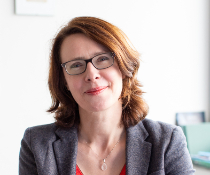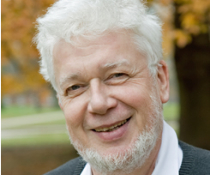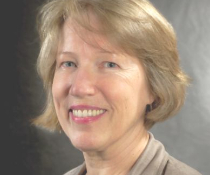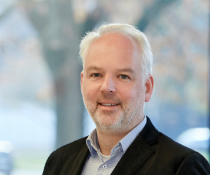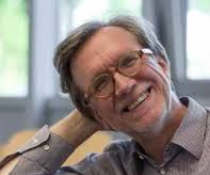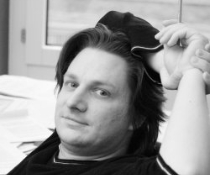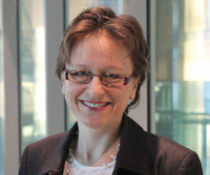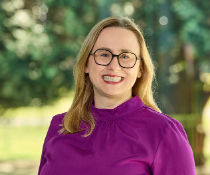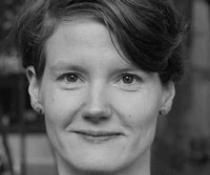Social Dynamics of the Self
Research Program
 Individuals are socio-culturally shaped shapers of their socio-cultural environment. Put differently, culture and the individual mutually influence each other. Therefore, in order to understand the social dynamics of the self, neither focusing on the individual nor on the larger societal context alone would be sufficient.
Individuals are socio-culturally shaped shapers of their socio-cultural environment. Put differently, culture and the individual mutually influence each other. Therefore, in order to understand the social dynamics of the self, neither focusing on the individual nor on the larger societal context alone would be sufficient.
 A fruitful approach to understand these social dynamics of the self hence requires the combination of different levels of analysis, which integrates psychology (as the study of individual thinking, feeling, and action) and social sciences that study the larger context, in particular sociology and political science. This is the general aim of the RTG’s research program.
A fruitful approach to understand these social dynamics of the self hence requires the combination of different levels of analysis, which integrates psychology (as the study of individual thinking, feeling, and action) and social sciences that study the larger context, in particular sociology and political science. This is the general aim of the RTG’s research program.
One basic dimension along which different construals of identity can vary is the extent to which the self is seen either as an independent entity or as interdependent with others. Whenever a cognitive, motivational, or emotional process refers to the self, subscribing to a lesser or greater degree to either pole of the independence-interdependence dimension is likely to affect the outcome. Research in the SELF program therefore addresses how independence-interdependence affects agency; i.e., the study of human beings as agents of their own life course in society. It focusses on the dynamics of the self, i.e., it should be change sensitive, be it in intra-individual terms or in terms of societal chronicity. Different context conditions of human behavior are addressed, be it intimate, immediate life contexts such as the family home or neighborhood, meso-level contexts like organizations, or more distal contexts such as the political and legal structural properties of societies or variations across cultures.
Research questions addressed in SELF dissertation projects should broadly correspond to the research program's seven project lines:
- Cultures of honor
- Intergenerational identity development
- Self-efficacy, health and well-being
- Family roles and work-life balance
- Social participation and (early) retirement
- Individualization and social morality
- Collective identities in transition
Download the complete SELF research program with all seven project line descriptions and potential research questions.
SELF's Principal Investigators
Below you will find the profiles of the SELF principal investigators. These BIGSSS faculty members serve as potential supervisors for dissertation projects conducted within the RTG.
Supervisors in Project Line 1: Cultures of Honor
Universität Bremen
Vice President for International Affairs, Academic Qualification, and Diversity (UB)
Tel.: +49 421 218 66430
Research Interests
- Social Inequality
- Families in the Context of Migration
- Intergenerational Transmission of Value and Transitions
Research Interests
- Political Socialization (Xenophobia, Right-wing extremism)
- Value Change and Value Transmission
- Social Cohesion
Methods Expertise
- Analysis of Variance
- Latent Growth Modeling
- Nonparametric Statistics
- Structural Equation Modeling
Research Interests
- Quality of Life, Quality of Work, Work-Life Balance
- Family, Household, Gender
- Social Capital and Social Cohesion
- Life Course Research
Methods Expertise
- Event History (Survival) Analysis
- Questionnaire Construction
- Research Design and Modeling
- Survey Design
- Various Regression Techniques
Constructor University
Academic Chair (BIGSSS), Speaker RTG Self
Tel.: +49 421 200 3426
Research Interests
- Cultural Differences in the Meaning of Choice
- Learning and Teaching in Multicultural Settings
- Foundations of Morality and Religious Beliefs
Supervisors in Project Line 2: Intergenerational Identity Development
Universität Bremen
Vice President for International Affairs, Academic Qualification, and Diversity (UB)
Tel.: +49 421 218 66430
Research Interests
- Social Inequality
- Families in the Context of Migration
- Intergenerational Transmission of Value and Transitions
Research Interests
- Political Socialization (Xenophobia, Right-wing extremism)
- Value Change and Value Transmission
- Social Cohesion
Methods Expertise
- Analysis of Variance
- Latent Growth Modeling
- Nonparametric Statistics
- Structural Equation Modeling
Research Interests
Emergence of social complexity
Methods Expertise
- Social Data Science with R
- Mathematics for the Social Scientist
- Data Visualization (with R)
Supervisors in Project Line 3: Self-Efficacy, Health and Well-Being
Universität Bremen
Vice President for International Affairs, Academic Qualification, and Diversity (UB)
Tel.: +49 421 218 66430
Research Interests
- Social Inequality
- Families in the Context of Migration
- Intergenerational Transmission of Value and Transitions
Research Interests
- Quality of Life, Quality of Work, Work-Life Balance
- Family, Household, Gender
- Social Capital and Social Cohesion
- Life Course Research
Methods Expertise
- Event History (Survival) Analysis
- Questionnaire Construction
- Research Design and Modeling
- Survey Design
- Various Regression Techniques
Constructor University
Academic Chair (BIGSSS), Speaker RTG Self
Tel.: +49 421 200 3426
Research Interests
- Cultural Differences in the Meaning of Choice
- Learning and Teaching in Multicultural Settings
- Foundations of Morality and Religious Beliefs
Research Interests
- Health Psychology
- Return to Work
- Workability
- Diversity Management
Research Interests
- Political Culture, esp. Values and Value Change
- Political Participation, esp. Protest
Adacemic Coordination
- Research Training Group SELF
- Regular and Affiliated PhD Fellows at Constructor University
Supervisors in Project Line 4: Family roles and work-life balance
Research Interests
- Quality of Life, Quality of Work, Work-Life Balance
- Family, Household, Gender
- Social Capital and Social Cohesion
- Life Course Research
Methods Expertise
- Event History (Survival) Analysis
- Questionnaire Construction
- Research Design and Modeling
- Survey Design
- Various Regression Techniques
Research Interests
- Health Psychology
- Return to Work
- Workability
- Diversity Management
Research Interests
Emergence of social complexity
Methods Expertise
- Social Data Science with R
- Mathematics for the Social Scientist
- Data Visualization (with R)
Supervisors in Project Line 5: Social Participation and (Early) Retirement
Research Interests
- Health Psychology
- Return to Work
- Workability
- Diversity Management
Supervisors in Project Line 6: Individualization and Social Morality
Constructor University
Academic Chair (BIGSSS), Speaker RTG Self
Tel.: +49 421 200 3426
Research Interests
- Cultural Differences in the Meaning of Choice
- Learning and Teaching in Multicultural Settings
- Foundations of Morality and Religious Beliefs
Research Interests
- Political Culture, esp. Values and Value Change
- Political Participation, esp. Protest
Adacemic Coordination
- Research Training Group SELF
- Regular and Affiliated PhD Fellows at Constructor University
Supervisors in Project Line 7: Collective Identities in Transition
Universität Bremen
Vice President for International Affairs, Academic Qualification, and Diversity (UB)
Tel.: +49 421 218 66430
Research Interests
- Social Inequality
- Families in the Context of Migration
- Intergenerational Transmission of Value and Transitions
Research Interests
- Political Socialization (Xenophobia, Right-wing extremism)
- Value Change and Value Transmission
- Social Cohesion
Methods Expertise
- Analysis of Variance
- Latent Growth Modeling
- Nonparametric Statistics
- Structural Equation Modeling
Research Interests
Emergence of social complexity
Methods Expertise
- Social Data Science with R
- Mathematics for the Social Scientist
- Data Visualization (with R)
Research Interests
- Political Culture, esp. Values and Value Change
- Political Participation, esp. Protest
Adacemic Coordination
- Research Training Group SELF
- Regular and Affiliated PhD Fellows at Constructor University

